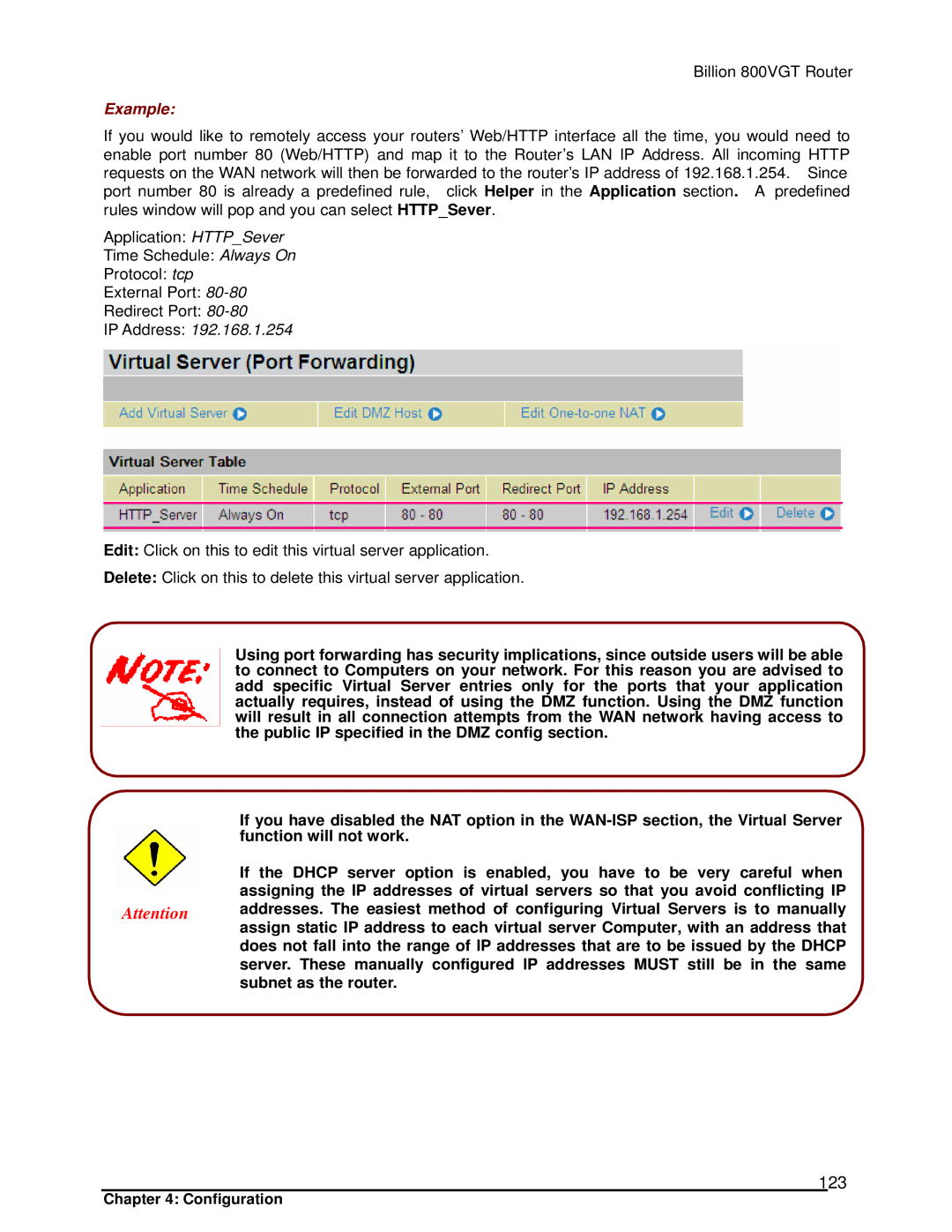
Billion 800VGT Router
Example:
If you would like to remotely access your routers’ Web/HTTP interface all the time, you would need to enable port number 80 (Web/HTTP) and map it to the Router’s LAN IP Address. All incoming HTTP requests on the WAN network will then be forwarded to the router’s IP address of 192.168.1.254. Since port number 80 is already a predefined rule, click Helper in the Application section. A predefined rules window will pop and you can select HTTP_Sever.
Application: HTTP_Sever
Time Schedule: Always On
Protocol: tcp
External Port:
Redirect Port:
IP Address: 192.168.1.254
Edit: Click on this to edit this virtual server application.
Delete: Click on this to delete this virtual server application.
Using port forwarding has security implications, since outside users will be able to connect to Computers on your network. For this reason you are advised to add specific Virtual Server entries only for the ports that your application actually requires, instead of using the DMZ function. Using the DMZ function will result in all connection attempts from the WAN network having access to the public IP specified in the DMZ config section.
| If you have disabled the NAT option in the | |
| function will not work. | |
| If the DHCP server option is enabled, you have to be very careful when | |
| assigning the IP addresses of virtual servers so that you avoid conflicting IP | |
Attention | addresses. The easiest method of configuring Virtual Servers is to manually | |
assign static IP address to each virtual server Computer, with an address that | ||
| ||
| does not fall into the range of IP addresses that are to be issued by the DHCP | |
| server. These manually configured IP addresses MUST still be in the same | |
| subnet as the router. |
